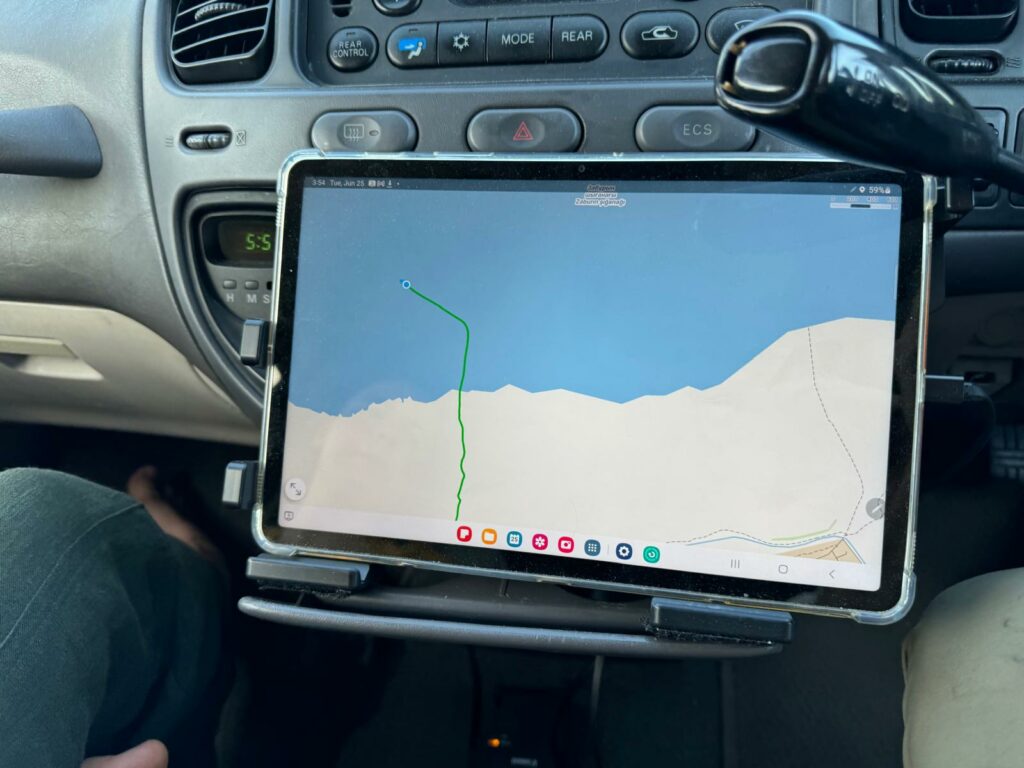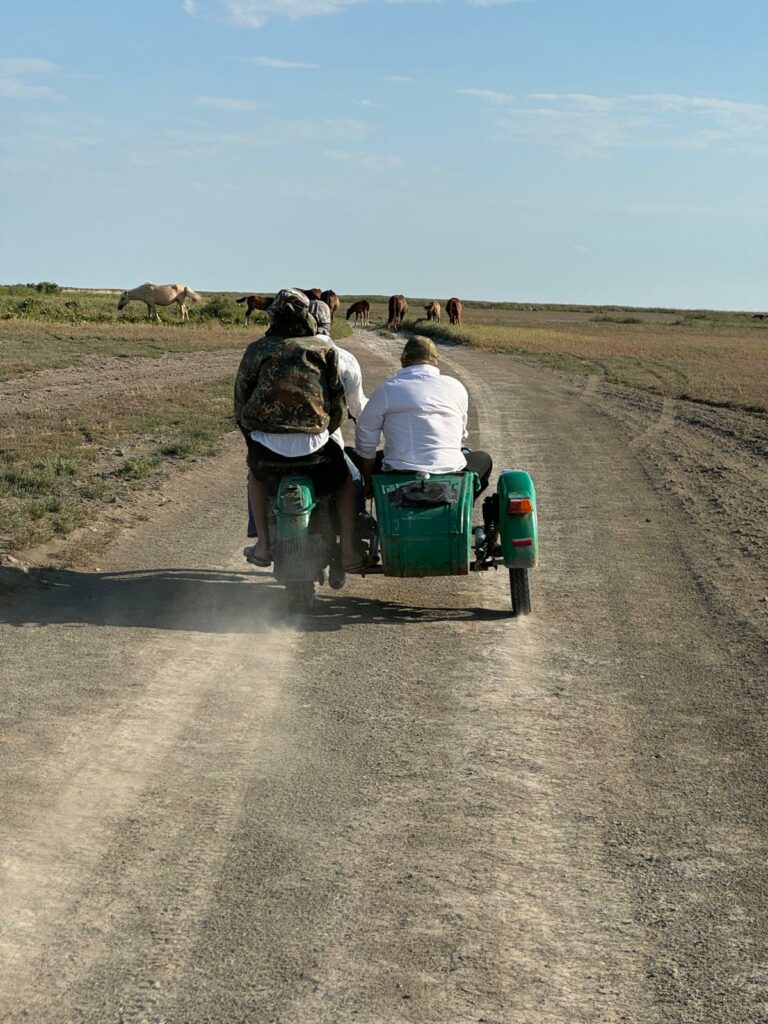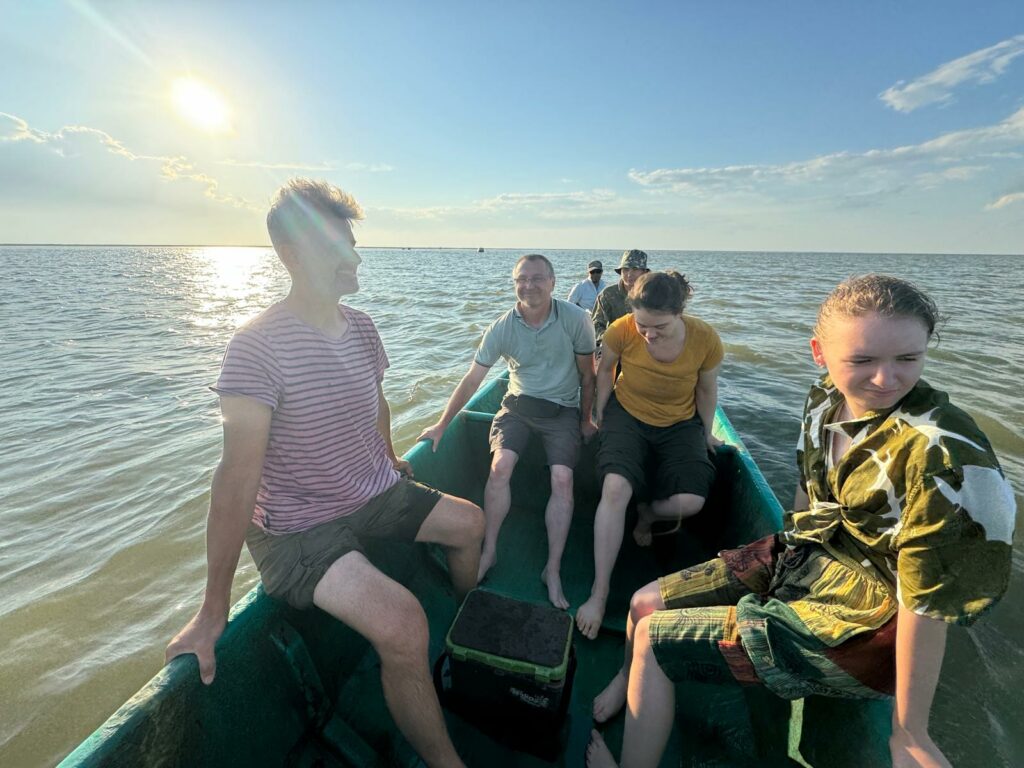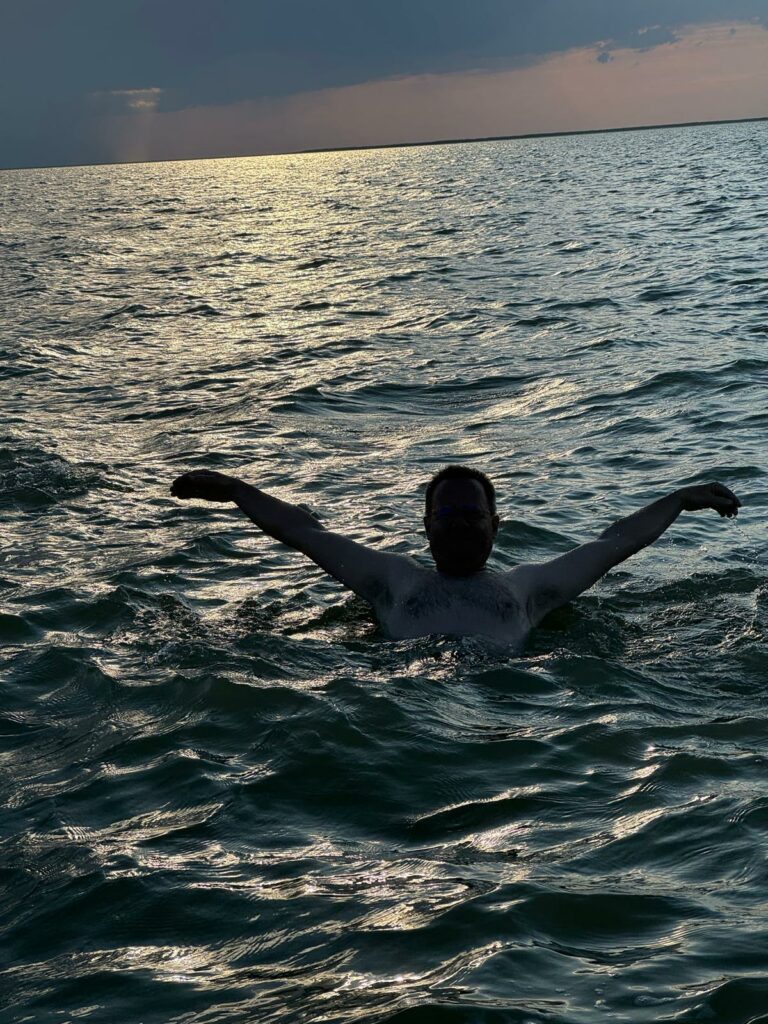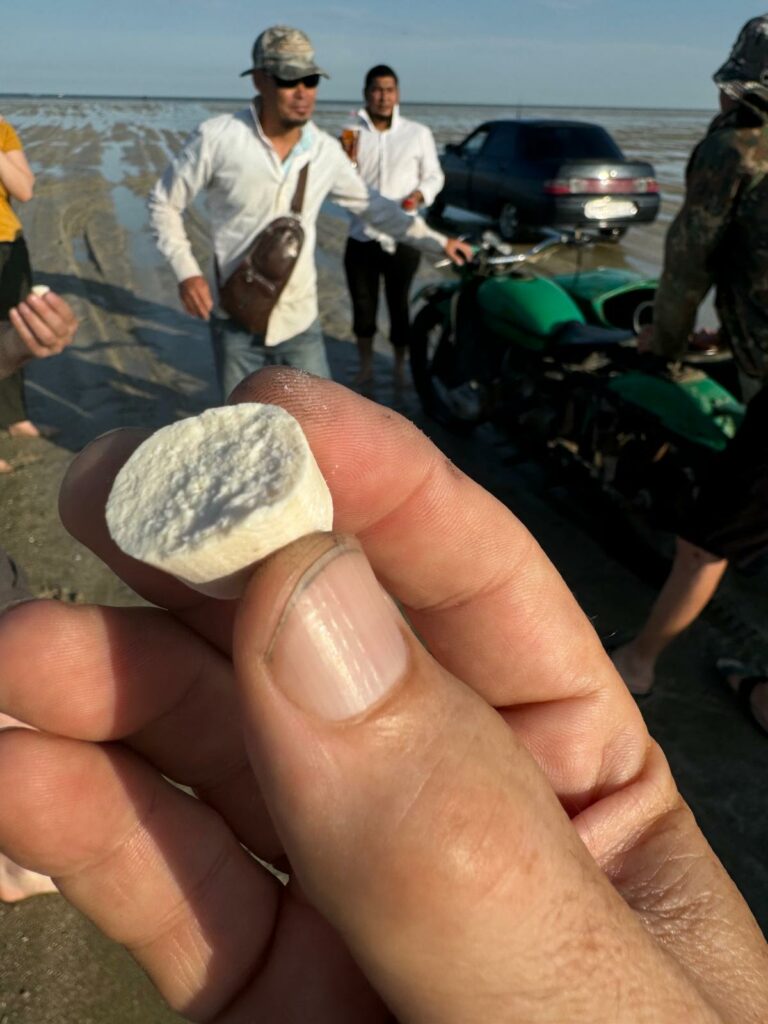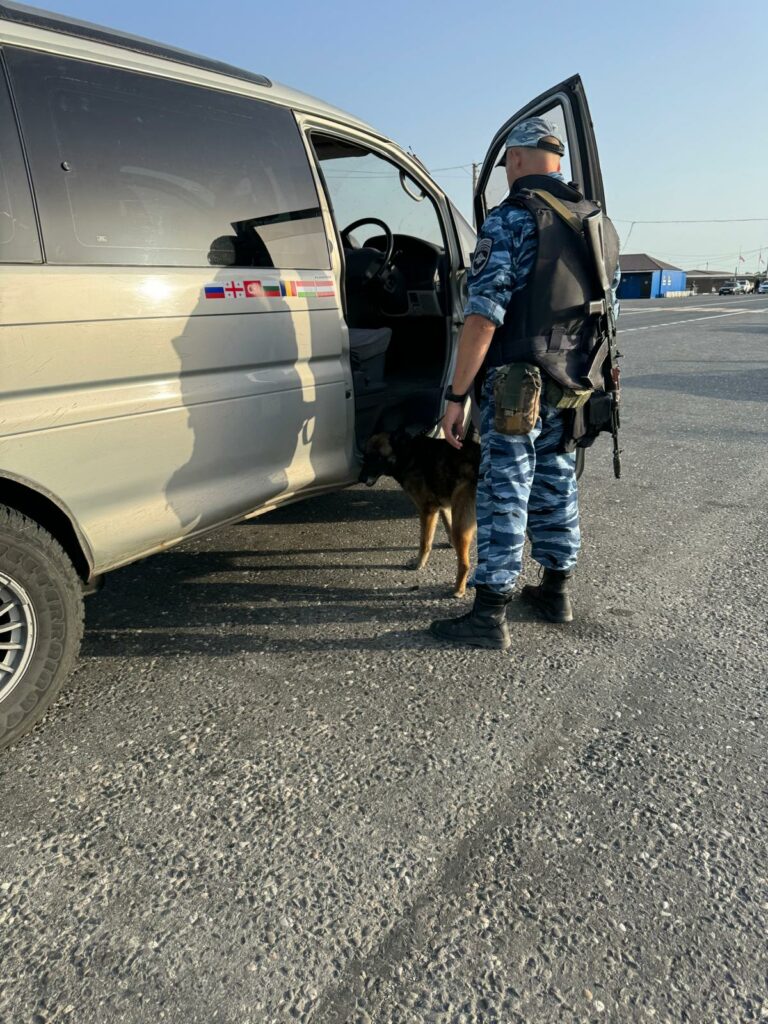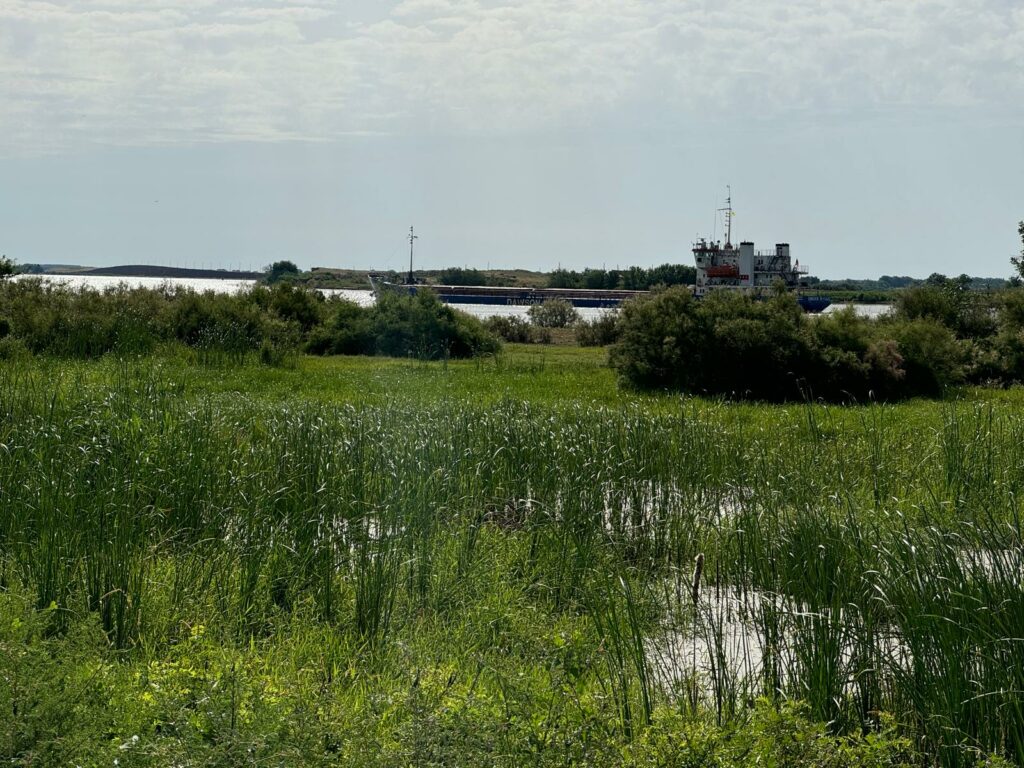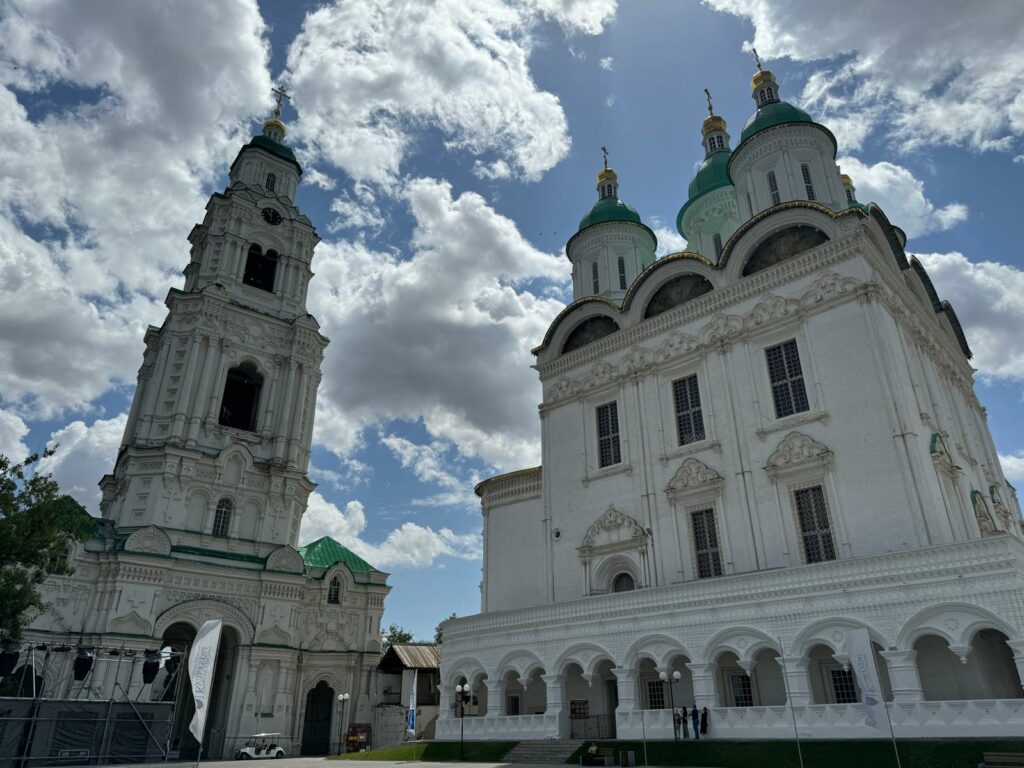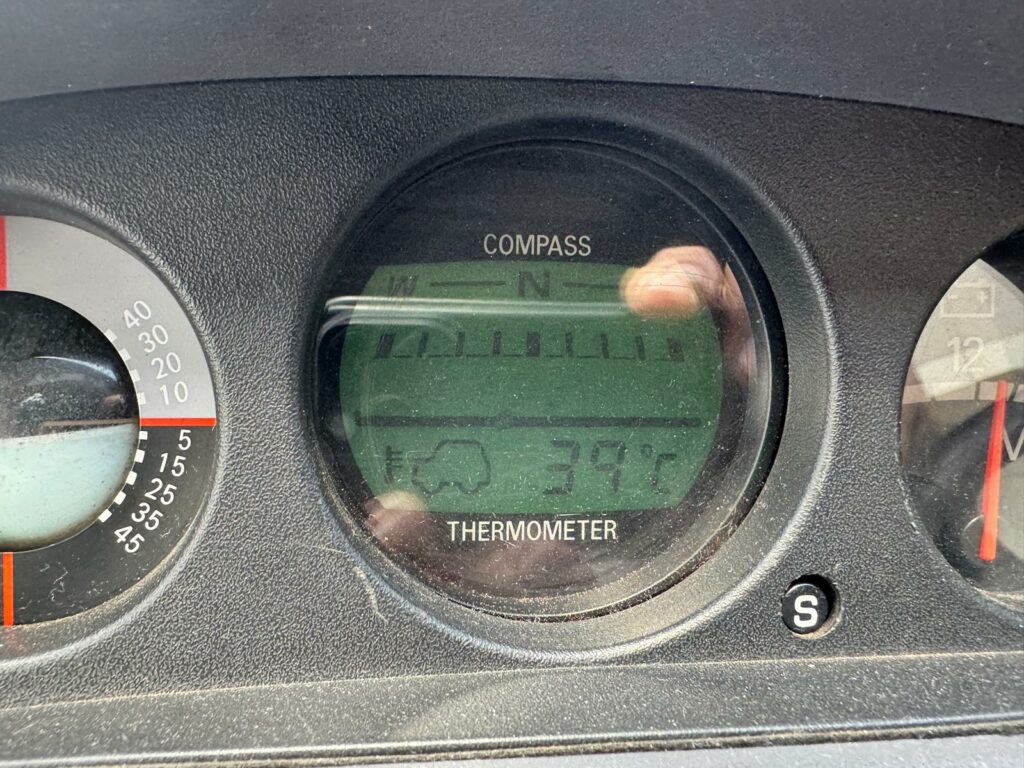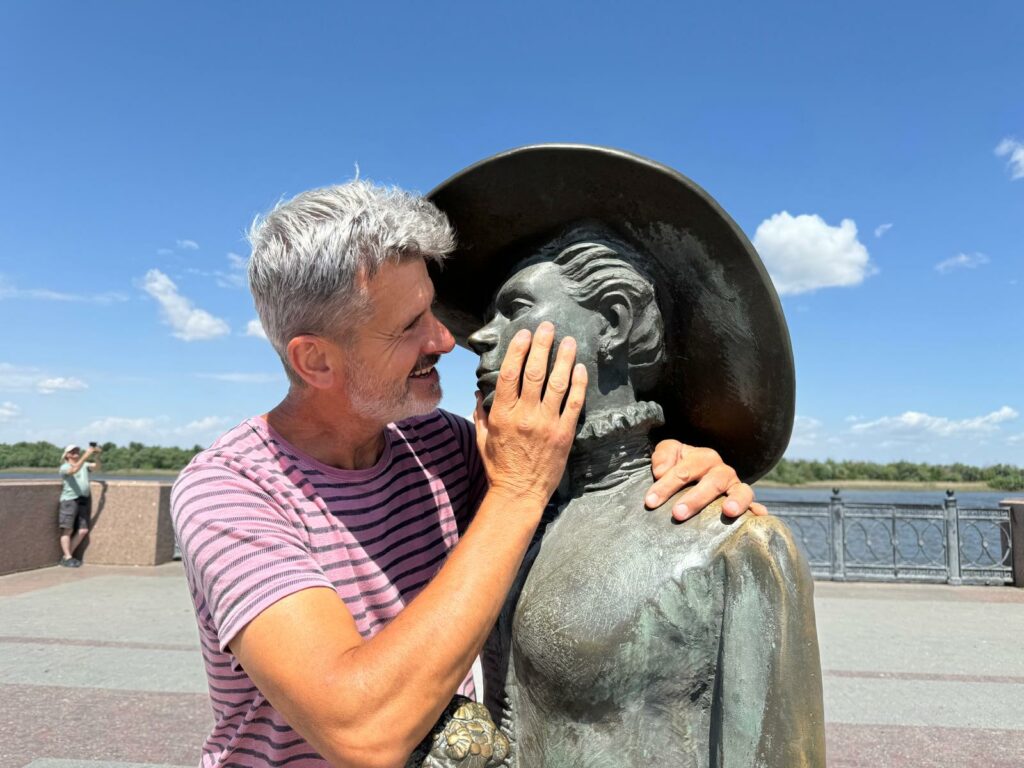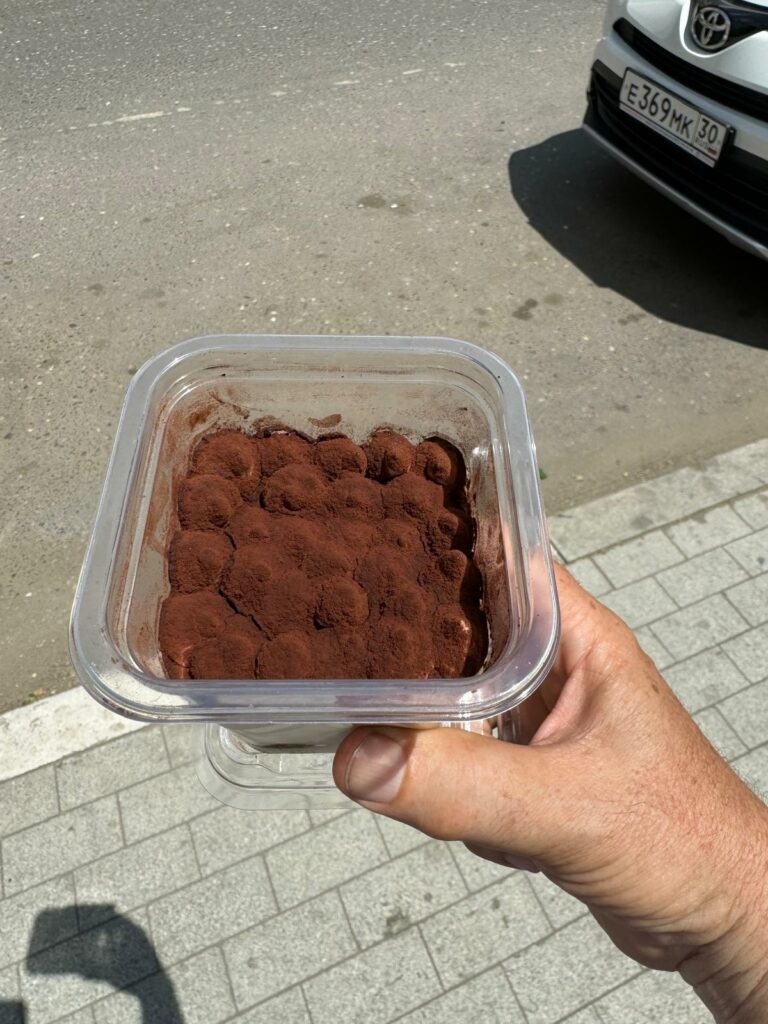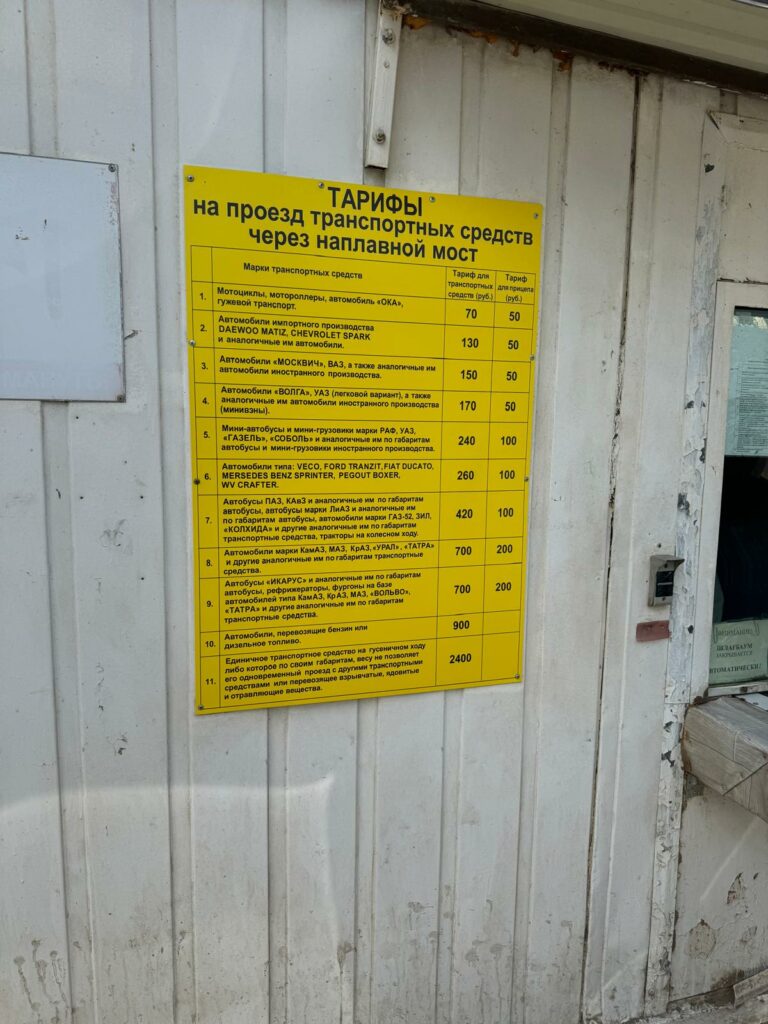We arrived at the Russian border at around 2pm and I was really worried, that they would reject us. Peter, my advisor in all visa and border crossing issues, estimated the probability to get through the border in the single digit range. The notary I spoke to in the morning, said the same.
All the options we had were either too expensive, too risky, or would have taken too long. The only potentially viable option would have been flying to Baku, sending the car there on a truck (self driving is not an option because all land borders of Azerbaijan are still closed since COVID), and catching a cargo ship to Aktau in Kazakhstan (there are no scheduled ferries between the two countries). With a lot of luck this could have fit into our schedule.
Anyway, before worrying about entering Russia, we first had to exit Georgia. I thought that would be a matter of a minute, but the transit license plates received the day before at the Turkish border were confusing the customs officer at the Russian one. There, such plates are used by car dealers to export cars to Russia and to Kazakhstan. Why the car of a tourist group should carry such a plate, they could not understand. Since I was not able to tell them either, a long discussion about what to do developed. I was not able to understand the various arguments, but after about 1.5 hours the customs offices seem to have agreed that they don’t have to understand the reason. Suddenly they stamped my passport and released me and my car. They did not even ask for the plates, I could keep them as a souvenir.
On the Russian side everything started to work out nicely – at the beginning. Passport control passed in 5 minutes, customs check of the luggage in another 5 minutes, secret service interrogation in 20 minutes, everything in an efficient and polite way. The only surprise was the question about my opinion about the special operation in Ukraine, but I found a neutral way of not saying anything.
Then came the final customs clearance, which I expected to be a matter of a few minutes. But on one hand my case was added to the end of a pretty long queue of other complicated cases of the kind “foreign citizen wants to enter Russia”, on the other hand every case took 1-2 hours to process. I don’t know what was happening behind the closed doors. But the fact that there were no clear instructions how to fill out the forms for sure has not improved the efficiency. The customs officers had to explain the same stupid mistakes to each applicant individually, and the applicants had to start from scratch filling out two copies of each form, because no corrections were allowed. Even worse, after a few hours of waiting suddenly the lights in the office went out and the customs officers left. End of their shift, OK. But between the shifts there was a 45 minutes gap without any progress.
I started to prepare the group for the night at 2000 meters altitude in no-mans land in the Caucasus mountains, but then something unexpected happened. The young lady replacing the less young lady of the previous shift turned out to be very pragmatic and efficient. She realized that if I wanted to sell my car in Russia without paying taxes I would probably not take 4 other people with me and would not fill up the car with camping gear and vegan food. She asked a few smart questions, accepted all my documents, and at the end wished us a good trip.
At 11:30pm, after 8 hours of waiting, we were allowed to enter Russia!
